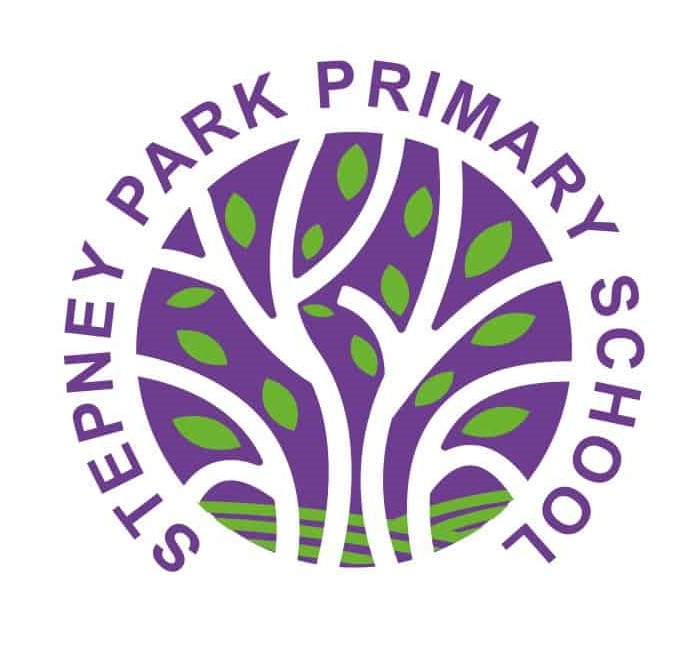Spiritual, Moral, Social and Cultural Education
Spiritual, Moral, Social and Cultural Education (SMSC) is not a specific subject in school but rather a thread that runs through many aspects of what we do. It aims to allow children to explore their beliefs about their place in the world, develop respect for other faiths, feelings and values, recognise right from wrong, investigate moral and ethical issues, participate in their local community, resolve conflict, celebrate diversity and more besides.
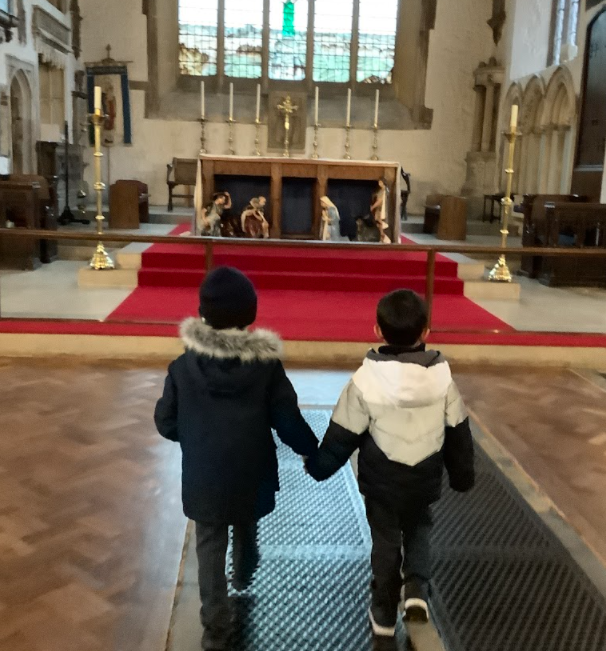
At Stepney Park, aspects of SMSC are taught through our formal, subject-based curriculum while others come through our wider personal development offer, including assemblies, literature, trips and visits and other experiences.
Below is a definition of each element of SMSC alongside some examples of how it is developed at Stepney Park Primary School.
Spiritual Development
This involves developing children's ability to be reflective about their own beliefs (religious or otherwise) and perspective on life and their knowledge of, and respect for, different people’s faiths, feelings and values. It also aims to foster a sense of enjoyment and fascination in children for learning about themselves, others and the world around them, using their imagination and creativity and an ability to reflect on their experiences.
At Stepney Park, this learning comes through:
- PSHEE. The majority of our PSHEE units of work develop children spiritually, though naturally some more so than others. These lessons offer children the opportunity to reflect on their ideas and beliefs and to listen with respect to the viewpoints of others. You can read more about our PSHEE curriculum here.
- Assemblies. Our programme of assemblies regularly explore religious festivals and beliefs including Eid al-Fitr and Eid al-Adha, Christmas, Easter, Diwali, Rosh Hashanah and Hanukah.
- RE. Through our Religious Education teaching, children learn about the beliefs and practices of a number of different religions, including their festivals and important stories. Alongside this learning, children are given opportunities to reflect on their own ideas and beliefs. You can read more about our RE curriculum here.
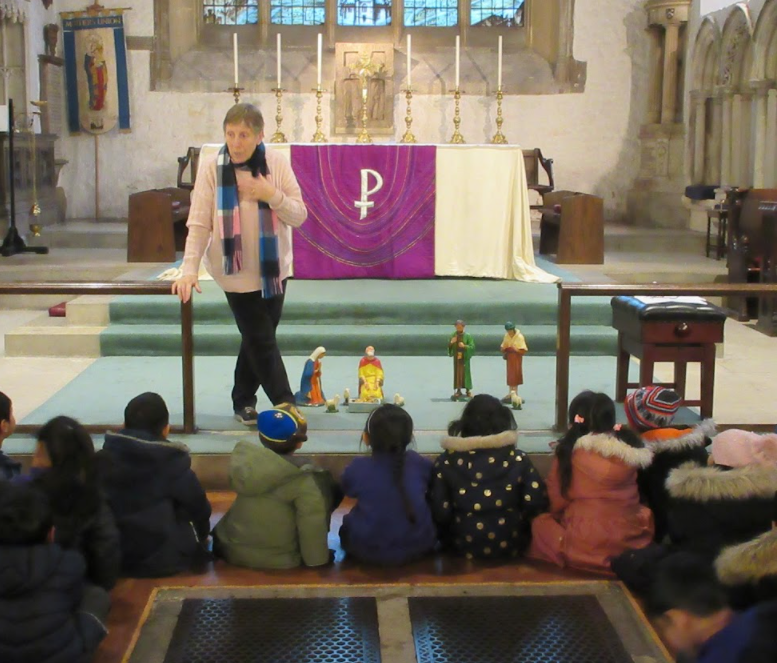
- Art. Throughout our art curriculum, children have opportunities to explore and express their ideas and feelings, contributing to their spiritual development, for example by exploring portraiture in a range of formats. In year 6, once children have developed their skills across a range of media, they benefit from a self-directed project. This freedom in the art studio to explore themes of interest to them personally offers a particularly fruitful opportunity for self-reflection. You can read more about our art curriculum here.
- Music. As a powerful means of human expression, music is an important part of children's spiritual development. At Stepney Park, children listen to a wide range of musical genres and discuss their responses to it, in addition to learning to play a variety of instruments. You can read more about our music curriculum here.
- Woodlands. At Stepney Park, we believe that being in nature can contribute significantly to children's spiritual development. We are lucky enough to have a forest area on our school site and children spend time exploring nature, trees, plants, flowers and insects, helping them to appreciate the beauty of the natural world.
Moral Development
Moral development involves children's ability to recognise the difference between right and wrong and to apply this understanding in their own lives. It also includes recognising legal boundaries and, in doing so, respecting the civil and criminal law of England; understanding of the consequences of their behaviour and actions; investigating and offering reasoned views about moral and ethical issues and understanding and appreciating the viewpoints of others on these issues.
At Stepney Park, this learning comes through:
- Principles of Restorative Justice. As part of our behaviour policy, adults work with children to discuss the consequences of inappropriate behaviour choices and help them understand how they can make amends.
- PSHEE. Many of our PSHEE units of work contribute to children's moral development. For example, children learn about the impact of their actions on others and gain an understanding of the behaviour society expects of them. These lessons also offer children the opportunity to discuss issues, justify opinions, reflect on their own responsibilities and listen and respond to the viewpoints of others. You can read more about our PSHEE curriculum here.
- Assemblies. Our programme of assemblies offers regular opportunities for children to reflect on moral issues. This includes regular discussions about different types of discrimination and what we can all do to address it, playground safety and anti-bullying.
- English. As children move through our school, they benefit from a rich and varied range of stories from around the world. The breadth of this reading, alongside the richness of class discussions about different characters, their lives and the decisions they make, allows children to engage regularly in moral discussions. Particular examples include Cloud Busting in year 4, which explores the actions and motivations of a bully and A Christmas Carol in year 5 where children discuss the character of Ebenezer Scrooge and the changes that come about when he is visited by ghosts. You can find out more about our English curriculum here.
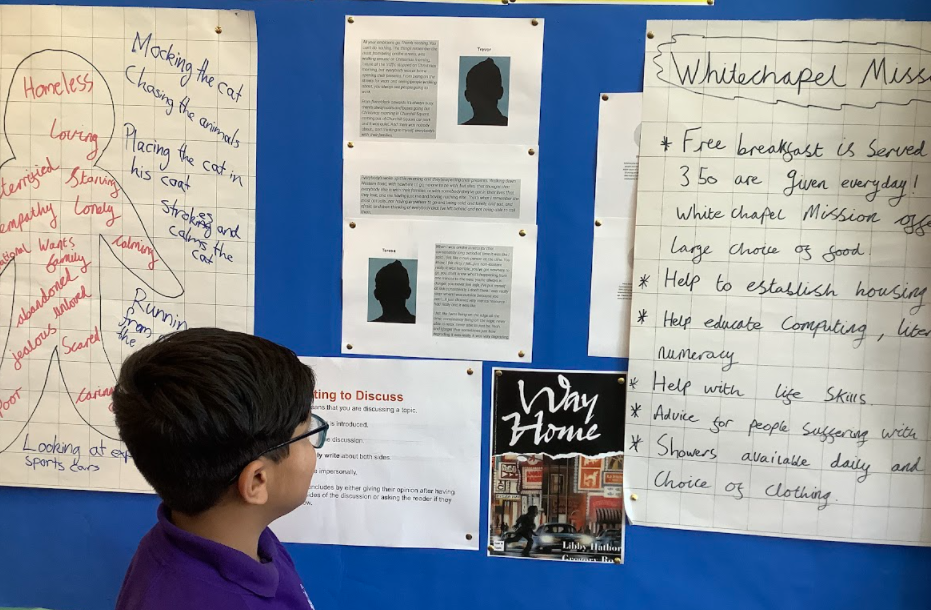
- Religious Education. As part of our RE curriculum, children engage with a wide range of moral issues, including through religious stories from a number of religions. These stories provide regular opportunities for children to reflect on their moral meanings. You can read more about our RE curriculum here.
- Geography. Sustainability and care for the environment form a major part of our geography curriculum, where children learn about the impact of various types of human activity on the natural world. You can read more about our geography curriculum here.
- History. Our history curriculum is a source of rich conversations that can contribute to children's moral development. For example, in year 6 children learn about the British Empire and consider a wide range of associated moral issues. You can read more about our history curriculum here.
Social Development
Social development is concerned with children learning to use a range of social skills in different contexts, for example working and socialising with other pupils, including those from different religious, ethnic and socio-economic backgrounds. It also seeks to develop a willingness to participate in a variety of communities and social settings, including by volunteering, cooperating well with others and being able to resolve conflicts effectively. We also aim to foster understanding of the fundamental British values of democracy, the rule of law, individual liberty and mutual respect and tolerance of those with different faiths and beliefs. This helps children to develop and demonstrate skills and attitudes that will allow them to participate fully in and contribute positively to life in modern Britain.
At Stepney Park, this learning comes through:
- Principles of Restorative Justice. As part of our behaviour policy, adults work with children to discuss the consequences of inappropriate behaviour choices and help them understand how they can make amends. In this way, children at Stepney Park develop the ability to resolve conflict effectively.
- PSHEE. Many of our PSHEE units of work contribute to children's social development. For example, children discuss people who are important to them and their plans and ambitions for the future, encouraging them to consider how they will contribute to wider society. You can read more about our PSHEE curriculum here.
- Computing. As our children are growing up in a digital world, our computing curriculum helps them to understand the importance of positive online behaviour, both to keep themselves and others safe and to show respect online, just as in real life. You can read more about our computing curriculum here.
- Assemblies. Our programme of assemblies promotes British Values by exploring key themes such as democracy and the importance of celebrating difference explicitly.
- After-School Clubs. Our after-school clubs offer children opportunities to socialise with their peers of different ages and from different backgrounds in a different atmosphere to the classroom.
- Volunteering. Children can volunteer to take part in Ambassador Groups. These include groups such as Playground Buddies, which work to help other children make friends on the playground. Children can also be elected to the school council, where they contribute to discussions about school improvement and feed this back to their class.
- Super Squads. This is our name for mixed-age groups in which ten children from Y1-Y6 come together regularly to collaborate on a variety of projects. This allows the older children to develop leadership skills, while also giving all children the opportunity to socialise with children beyond their own class or year group.
Cultural Development
Cultural Development is concerned with children developing an understanding and appreciation of the wide range of cultural influences that have shaped their own heritage and that of others. Children learn to understand and appreciate the range of different cultures in the school and further afield as an essential element of their preparation for life in modern Britain. They learn to recognise, and value, the things we share in common across cultural, religious, ethnic and socio-economic communities.
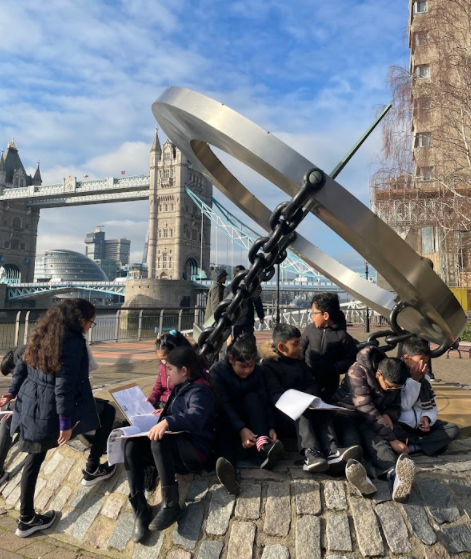
At Stepney Park, this learning comes through:
- Assemblies. Our programme of assemblies fosters children's cultural development by exploring a wide range of cultural themes. These include religious festivals, as well as non-religious celebrations such as how New Year is celebrated around the world. We also use assemblies to mark a wide range of culturally significant occasions such as Armistice Day and Bonfire Night.
- History. We have developed a particularly broad history curriculum with the aim that children learn about the history of cultures all over the world. It is for this reason that, in addition to a number of studies of British history, children learn about Ancient Islamic Civilisation and the Ancient Maya. You can read more about our history curriculum here.
- RE. As religion has played such a central role in cultures around the world, our RE curriculum contributes significantly to children's cultural development. Children learn about a wide range of religions, including the festivals and practices of its followers in addition to their fundamental beliefs. You can read more about our RE curriculum here.
- PE. As part of our PE provision, children are offered opportunities to take part in a range of inter- and intra-school sporting competitions.
- Art. As part of our art curriculum, not only do children have opportunities to create their own artwork and develop their own art skills, but they also learn about the work of others and how they have contributed to wider culture. You can read more about our art curriculum here.
- Music. At Stepney Park, all children across key stages 1 and 2 learn to play a musical instrument. They also have weekly opportunities to listen to and discuss a wide range of music composed and performed by musicians from a range of cultures. Children are also able to join our school choir. You can read more about our music curriculum here.
- Performances. Over time, children take part in a range of performances including Christmas shows, End of Year shows, musical concerts, poetry performances, talent shows and sharing assemblies. Children also have the opportunities to enjoy the performances of others, for example through theatre visits.
- After-School Clubs. Children are offered opportunities to attend after-school clubs covering a wide range of cultural interests including music production, sewing, arts and crafts, board games, henna art, a range of sports, yoga, chess and computing.
